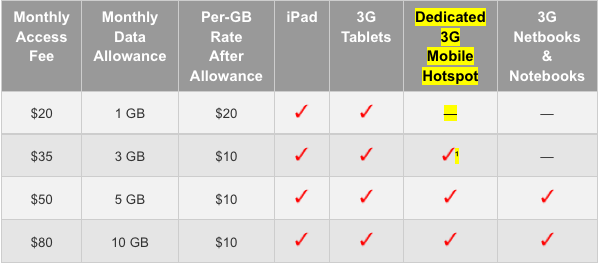
Here’s the latest on what they are offering: [Read more…] about Wireless Carriers Aid Japan Relief Effort
The Bill Police: Protecting Your Wireless Rights since 2003
Corporate Wireless is a headache to manage. We fix that.

Here’s the latest on what they are offering: [Read more…] about Wireless Carriers Aid Japan Relief Effort

So what Verizon was calling “unlimited lightning fast 4G” is not exactly so unlimited anymore. The wireless carrier is now throttling the top 5% of their data subscribers based on usage.
That is, any Verizon smart-phone user who uses an “extraordinary amount of data” will see a slowdown in their data-transfer speeds for the remainder of the month and the next billing cycle”. Yikes. And we thought Verizon was going to compete with “those other carriers” who offer limited data plans.
To add fuel to the fire, Verizon did not announce this to their millions of subscribers via press release, email or text message. Instead, the news ended up being leaked by a blogger who stumbled across a well-hidden PDF disclaimer on Verizon’s website. [Read more…] about Verizon is Throttling Data Users
Verizon has now announced NEW data rates for tablets, hotspots, note/netbooks for US subscribers.
Although not much has changed, one thing of particular significance is the fact that Verizon is now including a dedicated mobile 3G hotspot with all $35 and up data plans.

This is great news for users who use over 1GB of data on their tablets or netbooks and notebooks. Unfortunately, the base 1GB data plan ($20) does not include the mobile hotspot.
It is important to keep in mind that any devices that are connected via mobile hotspot contribute to your total data usage per billing cycle.
You can find more information about the MIFI 2200 mobile hotspot on Verizon’s website.

AT&T CUSTOMERS! AT&T is now adding additional charges for “new” customers. While we see the text says “new”, we have existing AT&T users who are being assessed this charge and for whom we will go back and obtain credits.
Virginia Equipment Tax Recoupment
Starting Feb 2011 Virginia customers will see a new surcharge on their bills. In 2004, the Virginia General Assembly repealed the sales and use tax exemption for utilities and authorized utilities to recoup the taxes from their customers. To recover this additional cost of business, AT&T will assess a surcharge representing a percentage of the charges on your monthly bill.
If you have questions, call 1-800-331-0500.
While kudos to AT&T for expressing the specifics so clearly below, you decide whether you believe the following charges to be fair as pass along to wireless subscribers. Don’t forget, the carriers have about 300 million wireless subscribers who are paying about $155 billion in fees. These DON’T count cost recovery fees (!). Hmm!
The below is taken from AT&T data and is sourced below as their information:
The additional charges for new customers in your area are shown below, including explanations of each charge.
The amounts shown below are based on the highest fee/surcharge rates assessed in your state; your actual fees/surcharges may be less. In addition to the AT&T charges described below, you will be billed for mandatory taxes and fees imposed by federal, state, and local governments on wireless subscribers.
State: VIRGINIA
Regulatory Cost Recovery Charge – $1.25
Federal Universal Service Fund – 15.5%
State Universal Service Fund – $0.00
Other AT&T Surcharges – 0.00%
The Regulatory Cost Recovery Charge is a charge assessed by AT&T associated with payment of government imposed fees and to recover the costs of compliance with government imposed regulatory requirements. It may include costs incurred in prior years that are not yet fully recovered. It is not a tax or charge which the government requires AT&T to collect from its customers. This charge is subject to change from time to time as the cost of compliance changes.
Components of the Regulatory Cost Recovery Charge
This charge is composed of the following elements:
Federal Regulatory Fee
This component is designed to recover the annual fee imposed on AT&T by the Federal Communications Commission (FCC); this fee is assessed by the FCC on each of the entities it regulates.
Telecommunications Relay Service (TRS)
This component is designed to recover the contributions that AT&T is required to make into the Federal TRS fund. This fund is designed to assist hearing and speech impaired persons with making and receiving messages.
Wireless Number Portability and Number Pooling
This component is designed to recover the costs associated with the federal mandates of number portability and number pooling:
Wireless Local Number Portability (WLNP)
This enables customers to keep their wireless telephone numbers when they switch wireless service providers.
Number Pooling
This is a telephone number conservation method that helps to delay area code exhaust situations.
Enhanced 911 (E911)
This component is designed to recover the costs in certain states where E911 cost recovery for wireless carriers does not exist or exists in a fashion that only provides partial recovery of E911-related costs. These E911 costs relate to government mandates requiring wireless carriers to deploy advanced technology to help emergency response agencies to better determine the location of the customer calling 9-1-1.
Wireless Tower Mandates Costs
This component is designed to recover certain costs incurred by AT&T to comply with the additional administrative requirements associated with regulations relating to wireless towers, including regulations imposed by the National Environmental Protection Act, Clean Water Act, Clean Air Act, Resource Conservation and Recovery Act, Endangered Species Act, and the Emergency Planning and Community Right to Know Act. This charge also recovers certain costs associated with regulations relating to historic properties impact studies, antenna registration, and costs incurred to comply with requirements related to the inspection of marked and lighted cell towers.
State Area Code Relief Costs
This component is designed to recover certain costs incurred by AT&T to comply with mandated geographic splits to implement new area codes in areas where an existing area code is close to number exhaustion.
Customer Proprietary Network Information (CPNI) Notification Costs
This component is designed to recover costs incurred by AT&T to comply with FCC CPNI notice requirements.
Network Outage Reporting Costs
This component is designed to recover certain costs incurred by AT&T to comply with FCC-mandated network outage reporting requirements.
State Commission Annual Reporting Costs (Applies only in IN, KY, LA, NM, OH, VA, WI, WV, WY)
This component is designed to recover certain costs incurred by AT&T to comply with state-mandated annual reports and filings required to be filed with the state utility commission or other state governmental entities.
Gross Receipts Surcharge (Missouri Only)
This component is designed to cover costs incurred and payments made by AT&T Mobility to settle claims related to past gross receipts taxes claimed by certain municipalities applicable to Missouri customers who are also billed a Municipal Gross Receipts Surcharge.
Puerto Rico Regulatory Fee (Puerto Rico Only)
This component is designed to recover the intra-island fee imposed on AT&T by the Puerto Rico Telecommunication Regulatory Board (PRTRB); this fee is assessed by the PRTRB on Telecom Service Revenue.
Federal Universal Service Fund Fee
The Federal USF, created by the federal government, is designed to help ensure first-class, affordable telecommunications service for all consumers across the country, especially residents in high cost rural communities and low-income customers. Additionally, the Federal USF provides for discounted telecommunications services for schools, libraries and rural health-care facilities. All telecommunications providers are required to pay into the Federal USF, and their contributions may be recovered from customers.
State Universal Service Fund Fee
Certain states have established state Universal Service Funds. The purpose of these state universal service funds is to ensure affordable telecommunications service for all consumers in the state, especially residents in high-cost rural areas and low-income customers. In certain states, all telecommunications providers are required to pay into these funds, and their contributions may be recovered from customers.
Other AT&T Surcharges
A percentage based and/or flat fee that AT&T assesses on the customer that allows it to recover its costs with regard to specific government taxes or fees imposed on the Company’s gross receipts, sales and/or property. Such fees include the State Telecommunications Relay Services, gross receipts surcharges, 911 access line charges, DEAF surcharges, local wireless surcharges, state infrastructure and similar surcharges, a property tax surcharge variable up to $1.00 (Puerto Rico only) and other fees imposed for government purposes. The Other AT&T Surcharges are remitted by the Company to the government but are not mandated charges to the customer.
 On December 21st and 22nd, Skype experienced a massive global blackout which left millions of users without a way to, well, “Skype” with colleagues and loved ones right before some major holidays.
On December 21st and 22nd, Skype experienced a massive global blackout which left millions of users without a way to, well, “Skype” with colleagues and loved ones right before some major holidays.
What happened next is something that will go down in the wireless/global telecom history.
Skype did the most reasonable thing anyone could have imagined…they credited the accounts of paying customers who were left without service. And they did so through a blog post.
If you handle wireless billing and invoices as much as we do, you’d know that each month, there can be an incredible amount of billing errors on behalf of the wireless carrier. What’s more interesting is that if these errors are not caught, you or your organization ends up paying them. Sadly, this is a very typical occurrence.
[Read more…] about How Skype is Changing Wireless Customer Service for the Better
U.S. Patent Numbers 7,486,944 & 7,986,936, Confidential and Proprietary, ©Copyright 2025 The Bill Police Inc., All rights reserved